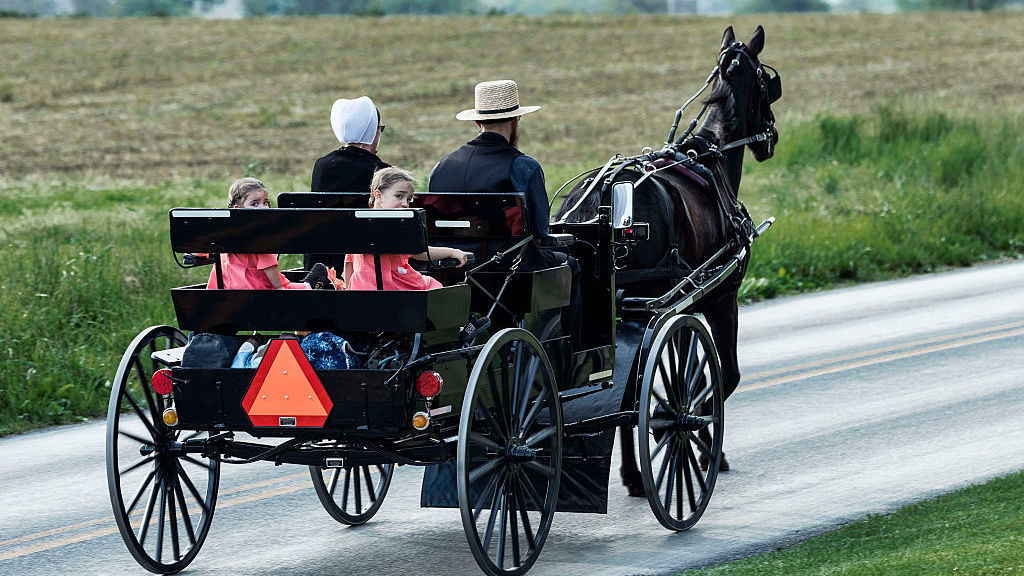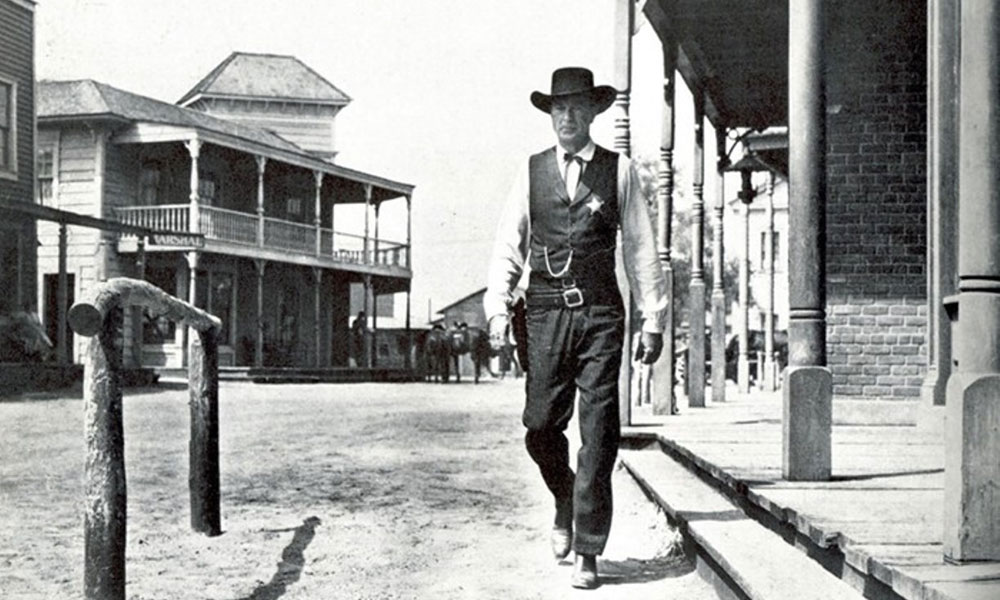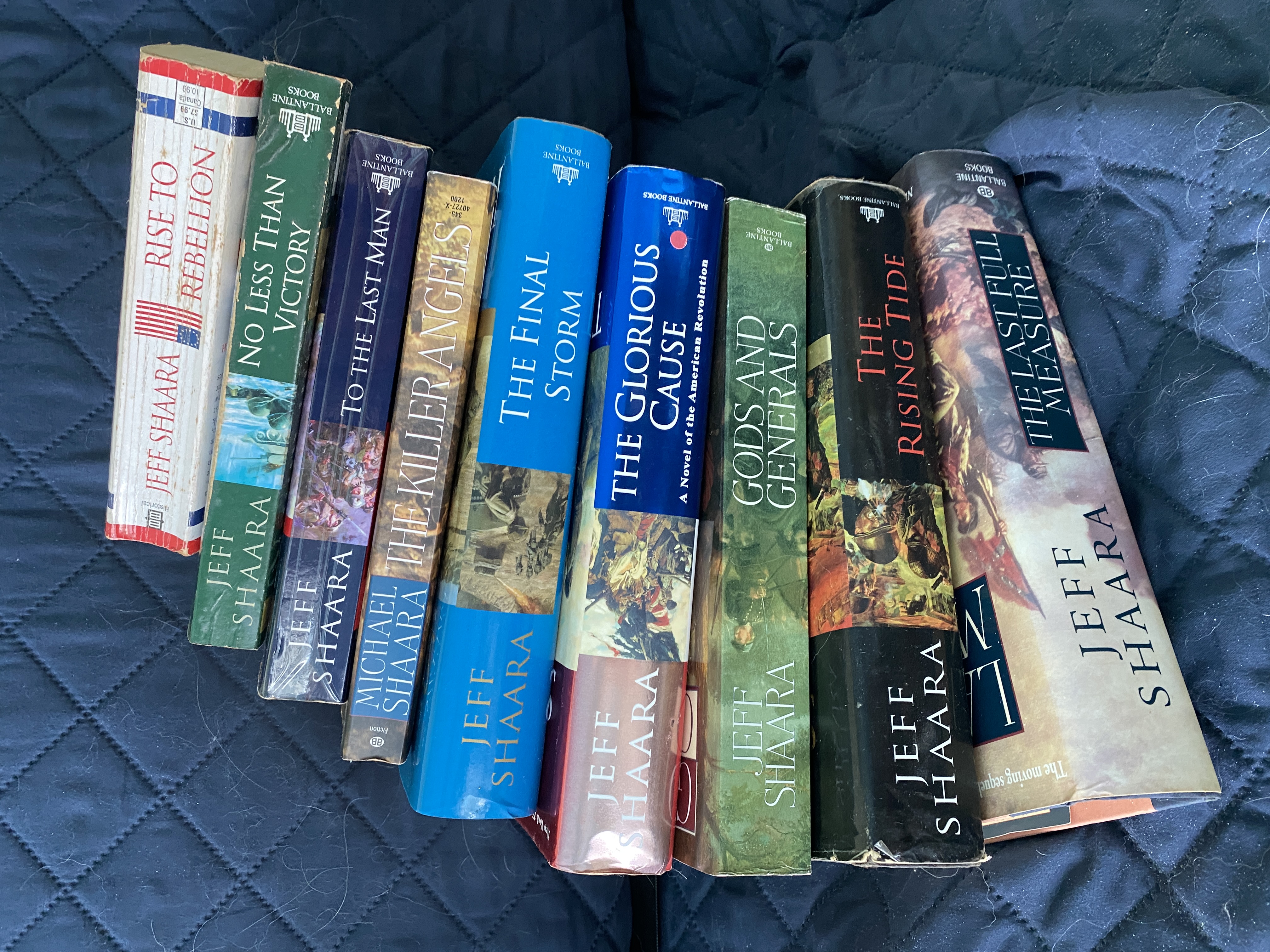 My first reaction to this topic of uncommon themes was fantasy or sci-fi, genres I’ve not approached, either in reading or writing, so I wasn’t sure how to respond. But then I realized even in our familiar world, there are unfamiliar themes. Most of us aren’t cops or doctors or spies and yet, we get drawn into those worlds despite what we don’t know and aren’t familiar with. So, how does a writer intrigue a reader enough to step into an unfamiliar world?
My first reaction to this topic of uncommon themes was fantasy or sci-fi, genres I’ve not approached, either in reading or writing, so I wasn’t sure how to respond. But then I realized even in our familiar world, there are unfamiliar themes. Most of us aren’t cops or doctors or spies and yet, we get drawn into those worlds despite what we don’t know and aren’t familiar with. So, how does a writer intrigue a reader enough to step into an unfamiliar world?
XX
 Currently Amish settings are quite popular, especially in romance, and the author must pull the reader into this oddly different, yet current world. In this case, it’s a world without many of our familiar forms of communication or transportation. Making that world attractive is what pulls a reader in to care about the people who live and fall in love there. And critical to making that world attractive are characters the reader must care about the characters wherever they live.
Currently Amish settings are quite popular, especially in romance, and the author must pull the reader into this oddly different, yet current world. In this case, it’s a world without many of our familiar forms of communication or transportation. Making that world attractive is what pulls a reader in to care about the people who live and fall in love there. And critical to making that world attractive are characters the reader must care about the characters wherever they live.
XX
The Hallmark channel has done this with all its Christmas movies. Most of us don’t live in that kind of town in this century where everyone  knows everyone, and everyone seems to mind everyone else’s business. So, how do their writers make viewers who thrive on the hustle and anonymity of city life care? It’s a common trope – one of the main characters is almost always someone who has a busy, rewarding life in a big city, and for one reason or another, has returned to the small town they grew up in and couldn’t wait to get out of years before. Yet, while that character has every intention of going back to the life they put on hold while they dealt with whatever issue brought them home, the people, the life, the memories of what once was begins to eat away at that plan. While the character is being beguiled by the small-town life, so is the watcher, or reader.
knows everyone, and everyone seems to mind everyone else’s business. So, how do their writers make viewers who thrive on the hustle and anonymity of city life care? It’s a common trope – one of the main characters is almost always someone who has a busy, rewarding life in a big city, and for one reason or another, has returned to the small town they grew up in and couldn’t wait to get out of years before. Yet, while that character has every intention of going back to the life they put on hold while they dealt with whatever issue brought them home, the people, the life, the memories of what once was begins to eat away at that plan. While the character is being beguiled by the small-town life, so is the watcher, or reader.
XX
 Writers of westerns are faced with a whole different set of aspects, many of which are not all that appealing. The hard-scrabble grit of real life in a western town of a hundred and fifty years ago could be a real turn-off. A posse riding out to catch a bad guy seems exciting. The arrival of the stagecoach has so much potential. But the realities of riding heard on cattle going to market, or the back-breaking toil of farm life before the advent of modern machinery – not so much. Authors need to make readers gloss over the unpleasant and focus on the exciting, heartwarming, rewarding aspects of that era. And again, it’s the characters who are going to hook the readers. If the local sheriff complains about the realities of the outhouse, the reader isn’t going to care. If the heroine moans about doing laundry by hand, she isn’t going to get nearly the audience that she will if we see her carefully sewing her wedding dress – by hand.
Writers of westerns are faced with a whole different set of aspects, many of which are not all that appealing. The hard-scrabble grit of real life in a western town of a hundred and fifty years ago could be a real turn-off. A posse riding out to catch a bad guy seems exciting. The arrival of the stagecoach has so much potential. But the realities of riding heard on cattle going to market, or the back-breaking toil of farm life before the advent of modern machinery – not so much. Authors need to make readers gloss over the unpleasant and focus on the exciting, heartwarming, rewarding aspects of that era. And again, it’s the characters who are going to hook the readers. If the local sheriff complains about the realities of the outhouse, the reader isn’t going to care. If the heroine moans about doing laundry by hand, she isn’t going to get nearly the audience that she will if we see her carefully sewing her wedding dress – by hand.
XX
 Historical novels of all eras tend to gloss over the less pleasant realities of their time. For most of us in today’s world, daily showers or baths are a way of life, but not that long ago, people were fortunate to bathe once a week. My dad once told me of a fellow worker he knew when he was young man who sewed himself into his long underwear in the fall and didn’t take them off until spring. Can’t imagine he smelled all that enticing, but he wouldn’t have been alone in traveling about with his own little cloud of odor following him everywhere. But that’s what folk in the 17th century used pomander balls for – hollow balls worn on ribbons about the neck and filled with spices to cover up the unpleasant odors. Trips to an outhouse in the middle of the night, especially in winter with frost on the seat and a cold wind howling down your back is hardly likely to hook any reader into caring much except to thank God they don’t live that way.
Historical novels of all eras tend to gloss over the less pleasant realities of their time. For most of us in today’s world, daily showers or baths are a way of life, but not that long ago, people were fortunate to bathe once a week. My dad once told me of a fellow worker he knew when he was young man who sewed himself into his long underwear in the fall and didn’t take them off until spring. Can’t imagine he smelled all that enticing, but he wouldn’t have been alone in traveling about with his own little cloud of odor following him everywhere. But that’s what folk in the 17th century used pomander balls for – hollow balls worn on ribbons about the neck and filled with spices to cover up the unpleasant odors. Trips to an outhouse in the middle of the night, especially in winter with frost on the seat and a cold wind howling down your back is hardly likely to hook any reader into caring much except to thank God they don’t live that way.
XX
 So, I’ve mentioned a few of the less pleasant aspects to our historical past that writers of historical fiction have to work around. And I’m sure you’ve already guessed how we deal with them – we don’t even mention them. Instead, we mention the grandeur of the castle, the triumph of successfully bringing in the harvest, the coziness of a roaring fire in a ranch or great hall, the beautiful gowns, the courtliness of the society and chivalrous knights. Those are the things that hook the reader and keep them reading.
So, I’ve mentioned a few of the less pleasant aspects to our historical past that writers of historical fiction have to work around. And I’m sure you’ve already guessed how we deal with them – we don’t even mention them. Instead, we mention the grandeur of the castle, the triumph of successfully bringing in the harvest, the coziness of a roaring fire in a ranch or great hall, the beautiful gowns, the courtliness of the society and chivalrous knights. Those are the things that hook the reader and keep them reading.
XX
 War is another world most of us, thank God, have never had to experience firsthand and those that have rarely talk about the horrors of it, so novels set in wartime have a faithful following of readers, who revel in the glory of winning the good fight and putting the enemy down. But if the writer wants to hook new readers, they have to make them care about who is doing the fighting, the suffering, and the dying. To do, that they tap into emotions we can all relate to: fear, love, hate, triumph, and sensations we’ve all experienced: bitter cold, reviving warmth, the scent of roasting food, the stench of things burning that shouldn’t be burning, the sound of footsteps, be they threatening or welcome. By using all the senses, the writer can put the reader right smack into the scene even if it’s one they personally have never been in, and in doing so make them care about the characters who people this unfamiliar world.
War is another world most of us, thank God, have never had to experience firsthand and those that have rarely talk about the horrors of it, so novels set in wartime have a faithful following of readers, who revel in the glory of winning the good fight and putting the enemy down. But if the writer wants to hook new readers, they have to make them care about who is doing the fighting, the suffering, and the dying. To do, that they tap into emotions we can all relate to: fear, love, hate, triumph, and sensations we’ve all experienced: bitter cold, reviving warmth, the scent of roasting food, the stench of things burning that shouldn’t be burning, the sound of footsteps, be they threatening or welcome. By using all the senses, the writer can put the reader right smack into the scene even if it’s one they personally have never been in, and in doing so make them care about the characters who people this unfamiliar world.
XX
Another way a writer of historical novels captivates the reader is with an inside peek at the things that brought us to where we are today. Whether it’s the politics of another era, the empire building of the Romans, or the English and Spanish that followed, or the formation of our own democracy, having a glimpse of the things that made those eras grand can capture a reader’s attention and keep them reading.
 XXXX
XXXX
I have a set of books on my shelf written by Michael and Jeff Shaara (father and son.) They are technically novels as they put words into the mouths and thoughts into the heads of the main characters, but those characters were real people, people who were in some part responsible for creating the America we live in today, from the Revolutionary War to Korea and Vietnam. The authors were meticulous in their research and the stories are told from several points of view, including men and women on both sides of the fight, from privates to generals (and their wives or daughters.) I devoured those novels and thought, both when I was reading them and since, that it’s a shame they are not required reading in our schools. What a way to capture the interest and attention of students who have no desire to learn about history than to tell it the way these two men did. Because they get into the heads and hearts of the people of the times, they make the reader care. When was the last time you read a history book and cared much about any of the people you met there? Yet in the Shaara books, we meet Robert E. Lee, not when he was a general, but as a freshly minted Captain not long out of West Point, young, eager and finding his way in his new world. We sit down to a meal prepared by Abigail Adams while she absorbs the discussion of the men and forms her own opinions of what’s going on. In the Shaara books we become the players of history and that’s what hooks us and keeps us reading even when we already know the ending, and even in an arena we are completely unfamiliar with. There are likely authors in other countries who have managed to capture the imaginations of those living in today’s world and transported them back to times long past, as well.
 XXXX
XXXX
Bottom Line, you can create all kinds of uncommon settings from spaceships to tall ships. From the castles of royalty in any era to the cube farms where so many spend their working lives today, or the frozen front lines in the Korean War, or an alien world peopled by creatures we wouldn’t recognize. It’s the characters who hook the reader and make them care in any world.
XX
Why not hop on over and see what two of my fellow Round Robin Blog Hoppers have to say about Hooking the reader in Uncommon settings – or for that matter with uncommon characters.
XX
XX
XX
Dr. Bob Rich - Nonhuman is not inhuman
Connie Vines - http://mizging.blogspot.com/
